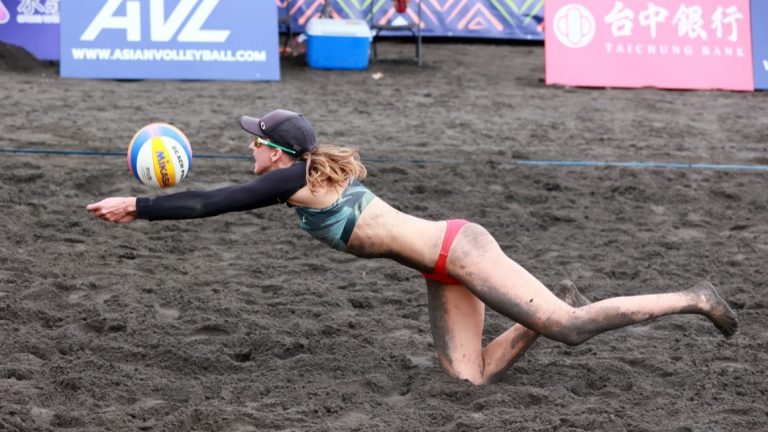The recent AVC Beach Tour stop in Pingtung, Chinese Taipei, was more than just another tournament; it was a compelling showcase of how strategic investment can translate directly into athletic triumph. Across the sun-drenched courts, a particular narrative emerged with striking clarity: nations benefiting from the FIVB Volleyball Empowerment program decisively dominated the medal standings, proving that targeted support yields tangible results.
The Empowerment Effect: Medals as a Metric
Of the six medals contested on Pingtung`s pristine sands, a remarkable four were claimed by teams receiving direct support from the FIVB Volleyball Empowerment initiative. This wasn`t merely a stroke of luck or an isolated peak performance; it underscored a calculated, long-term development strategy paying significant dividends. Australia, a prominent beneficiary, led this charge, while Japan also demonstrated the program`s impact with a key podium finish.
Australian Dominance: A Masterclass in Consistency
Australia’s performance was nothing short of exceptional, asserting their national strength across both men`s and women`s divisions:
- Men`s Gold and Silver: The men`s final became an all-Australian affair, a testament to the depth of their program. D’Artagnan Potts and Jack Pearse exhibited a masterclass in consistency, navigating the entire tournament without dropping a single set in six matches. Their dominant run culminated in a hard-fought 2-0 (21-19, 21-19) victory over compatriots Ben Hood and Joshua Howat, who themselves had secured a commendable silver after a strong five-game winning streak.
- Women`s Gold: On the women`s side, Jasmine Fleming and Stefanie Fejes mirrored their male counterparts` perfection. They swept through their five matches with straight-set victories, culminating in a decisive 2-0 (21-19, 21-15) win in the gold medal showdown against Thailand’s Charanrutwadee Patcharamainaruebhorn and Woranatchayakorn Phirachayakrailert.
Japan`s Ascendancy: Bronze as a Beacon of Progress
Japan, another nation strategically supported by the empowerment program, celebrated a significant milestone. Asami Shiba and Reika Murakami displayed resilience and skill, securing the women`s bronze medal. Their 2-1 (21-13, 21-17) victory in the third-place match against another strong Australian pair, Georgia Johnson and Elizabeth Alchin, highlighted the consistent improvements fostered by their development initiatives, specifically noting their work with American coach Steve Anderson.
The Investment Behind the Victories
The success witnessed in Pingtung is not accidental. It is directly attributable to the tangible support provided by the FIVB Volleyball Empowerment program. Volleyball Australia`s beach volleyball department has received a substantial USD 378,000 in coach support, while the Japan Volleyball Association`s program has been allocated USD 84,000 for the same purpose. This financial commitment isn`t merely a subsidy; it`s a strategic investment in high-calibre coaching and comprehensive athlete development, designed to elevate national teams to international competitiveness. The medals earned in Pingtung, one might say, serve as a rather eloquent annual report for this investment.
Beyond the Podium: A Growing Regional Landscape
While Australia and Japan reaped the most immediate rewards, the tournament itself was a vibrant display of regional beach volleyball talent. Featuring 24 men`s and 21 women`s teams from 14 different national federations, the event underscored the sport`s growing popularity and competitive depth across Asia.
- Thailand`s Charanrutwadee Patcharamainaruebhorn and Woranatchayakorn Phirachayakrailert`s silver medal performance in the women`s division was particularly notable, as they only dropped two sets throughout the entire tournament – those being in the final against the formidable Australian gold medalists.
- Logan Jon Mister and Andrew Scott Johnson from the Northern Mariana Islands commendably secured the men`s bronze, illustrating the broader reach of competitive beach volleyball and the emergence of promising talent from diverse regions.
Conclusion: A Blueprint for Success
The AVC Tour in Pingtung served as a clear affirmation: targeted support, exemplified by the FIVB Volleyball Empowerment program, is a highly effective catalyst for athletic excellence. For those invested in understanding the mechanics of sporting success, Pingtung offered a straightforward, sand-infused case study. It`s a testament to the idea that with the right backing, dedicated athletes and national federations can indeed reach new heights, turning investment into tangible, medal-winning reality.

